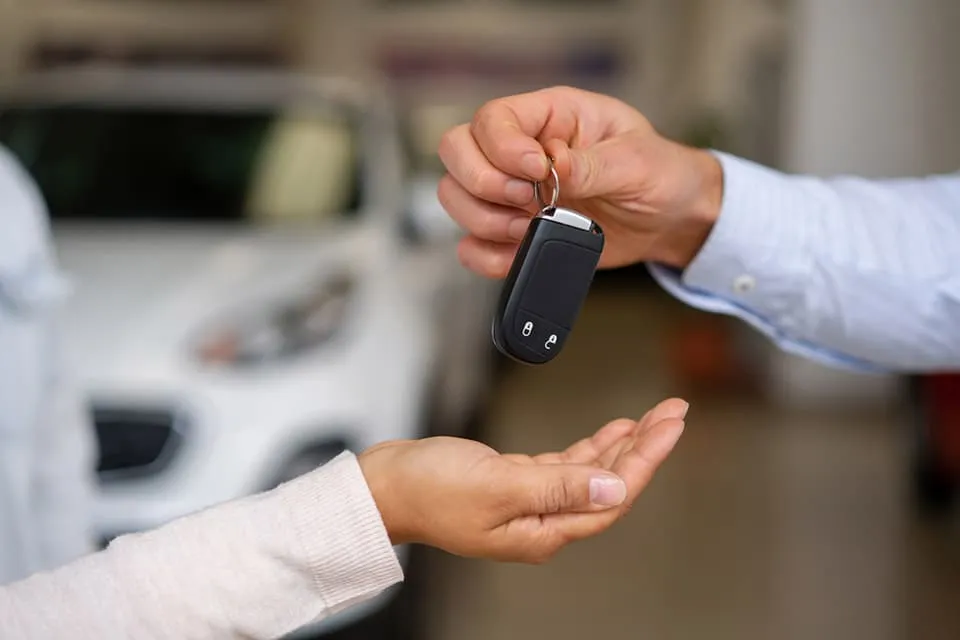Ever get that itch? The one where you're scrolling through car listings, picturing yourself behind the wheel of something newer, shinier, and maybe with that amazing panoramic sunroof? It's a powerful feeling, that desire for an upgrade. We've all been there! Trading in your current ride seems like the obvious path to that new-car smell, but what if I told you that holding onto your trusty steed could actually be the smarter move? Before you jump headfirst into that trade-in process, let's explore why keeping your car might be the surprisingly awesome choice for you.
When is holding onto your vehicle a good idea?
Okay, so you're probably thinking, "Easy for you to say! You haven't seen my car." Maybe it's got a few dents, the interior isn't exactly showroom-ready, and it's definitely seen better days. But before you dismiss the idea entirely, consider this: you already know your car. You know its quirks, its strengths, and most importantly, its maintenance history. Trading it in means venturing into the unknown with a new vehicle, potentially inheriting someone else's problems or facing unexpected issues down the road.
Think of it like this: imagine you've finally perfected your grandma's secret cookie recipe. It took years of trial and error, but now you can whip up a batch that's guaranteed to impress. Would you throw away that recipe and start from scratch with a new, untested one? Probably not! Your car is similar – you've invested time and money into maintaining it, understanding its needs, and keeping it running.
Holding onto your vehicle also offers significant financial advantages. Trading in often involves taking on a new car loan, which means interest payments, higher insurance premiums, and depreciation costs. By keeping your current car, you avoid these expenses and can allocate those funds towards other goals, like paying off debt, saving for a down payment on a house, or even just enjoying some extra spending money.
Furthermore, consider the environmental impact. Manufacturing new cars requires significant resources and energy. Extending the lifespan of your current vehicle reduces the demand for new car production, contributing to a more sustainable lifestyle. It's a small but meaningful way to lessen your carbon footprint.
How do I reduce fuel costs without changing cars?
Fuel efficiency is a major concern for many drivers. While newer cars often boast better gas mileage, there are several ways to improve the fuel economy of your current vehicle. Regular maintenance is key. Make sure your tires are properly inflated, your engine is tuned up, and your air filter is clean. These simple steps can make a noticeable difference in your fuel consumption.
Driving habits also play a crucial role. Avoid aggressive acceleration and braking, maintain a consistent speed on the highway, and use cruise control whenever possible. Planning your routes in advance can also help you avoid traffic congestion and unnecessary idling. Consider combining errands into a single trip to minimize cold starts, which are less fuel-efficient. Removing unnecessary weight from your car can also boost efficiency, so clear out any items you don’t regularly need.
Why does tire pressure matter for fuel economy?
Tire pressure has a surprising impact on fuel economy. Underinflated tires create more rolling resistance, which means your engine has to work harder to move the car forward. This increased effort translates directly into higher fuel consumption.
Checking your tire pressure regularly, ideally at least once a month, and inflating them to the recommended pressure (found in your owner's manual or on a sticker inside your driver's side door) can significantly improve your gas mileage. Proper tire inflation also extends the life of your tires and improves handling and safety. It’s a win-win-win situation!
Is buying used better than leasing for budget drivers?
For drivers on a budget, buying a reliable used car is often a more financially sound decision than leasing. Leasing typically involves lower monthly payments in the short term, but you never actually own the vehicle. At the end of the lease term, you have to return the car and either start a new lease or purchase a vehicle.
Buying a used car, on the other hand, allows you to build equity over time. Once you've paid off the loan, you own the car outright and can continue driving it without making monthly payments. While used cars may require more maintenance than new cars, the overall cost of ownership is often lower than leasing, especially when factoring in potential excess mileage charges and wear-and-tear fees associated with leasing agreements. Carefully research and inspect any used car before purchasing to ensure its reliability and minimize potential repair costs.
Ultimately, the decision of whether to trade in or keep your car depends on your individual circumstances and priorities. If your car is still reliable, well-maintained, and meets your transportation needs, holding onto it can be a financially savvy and environmentally responsible choice.
So, before you get swept away by the allure of that shiny new model, take a moment to appreciate the value of what you already have. Perhaps a little TLC, a good detailing, and a renewed perspective are all you need to rediscover the joy of driving your current car. Who knows, you might just find that the grass isn't always greener on the other side – sometimes, it's perfectly comfortable and familiar right where you are. Maybe take it for a spin and see what you think!
